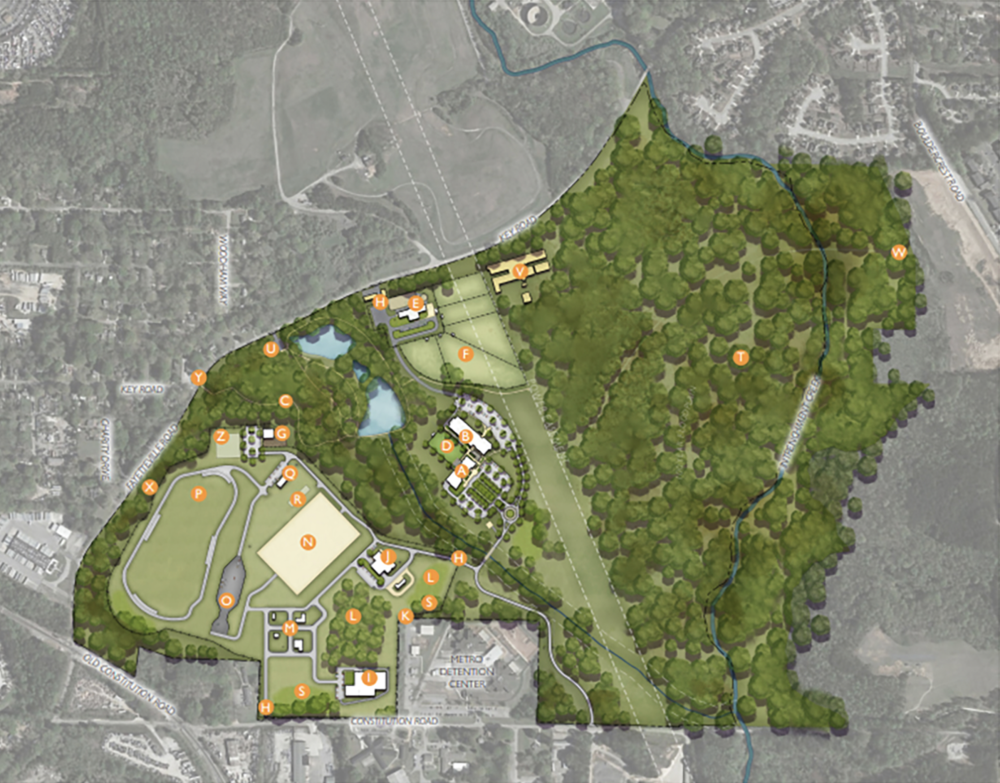Originally published in The Champion
A stakeholder committee has helped shape the proposed police training facility on City of Atlanta-owned property in southwest DeKalb, but DeKalb County Commissioner Ted Terry said he wants more research and information on the property’s history and the environmental implications of the proposed development.
Terry recently presented proposed legislation to the DeKalb Board of Commissioners requesting an environmental impact study of the proposed development. The resolution was referred to the Planning, Economic Development, and Community Services committee, which tabled the resolution for 30 days at its July 26 meeting.
Terry said his proposed legislation would examine environmental implications to Intrenchment Creek and South River, noise issues, and other issues that have been discussed by protestors and local environmental activists.
Studies such as a phase two environmental analysis could reveal if there are environmental problems that could slow the development or cost taxpayers and investors more money, according to Terry.
The resolution states that the phase two study “would provide a more diligent review of potential environmental hazards that might yet be unknown, such as possible site contaminants, buried debris, and significant data gaps.”
“If you look at the areas where the prison farm was abandoned, to me it’s clear that there are more underlying environmental issues that deserve a deeper review,” said Terry. “I’d also like a little more effort to acknowledge the long history of the area.”
Terry said it’s important to do the research now because the development is already expected to cost $90 million. He added that the project is one government jurisdiction working in another government jurisdiction, so the development hasn’t been subject to the same regulations as a private development. A private development, according to Terry, would have more impact studies done and a more thorough community input process.
“The goal all along from my point of view was to replicate that citizen and stakeholder process,” said Terry.
The environmental implications related to Intrenchment Creek or South River and its watersheds could be more important than additional costs, according to Terry. Protestors have also mentioned the implications of cutting one of the largest urban forests left in the country.
“On one side, what’s concerning is if there will be additional costs associated with this … but are we making sure that if the site gets developed, that there aren’t any long-term environmental consequences of this land disturbance, understanding that there are decades and decades of history of letting that site degrade,” said Terry.
DeKalb officials said if approved, their study would investigate “a community member’s independent environmental assessment … which highlighted several areas within the entire Prison Farm site that are environmentally sensitive areas and contain vital habitat ecosystems that deserve to be considered in the overall assessment and conservation areas in the [Atlanta public safety training center] development plan.”
“We should be focusing on any development along South River or Intrenchment Creek,” said Terry. “Everything that we do there could put [the waterways] more at risk.”
The resolution adds that in the 2019 master planning process, the City of Atlanta amended its city charter to create a “South River Forest Park”, designated in an area that includes the land proposed for the development of the Atlanta public safety training center.
Terry calls for studies on the area’s history
In the original resolution, Terry also called for “the idea of housing reparations,” for neighborhoods that have fallen victim to redlining or other actions that Terry said have impacted neighborhoods around the Old Atlanta Prison Farm.
Terry said the way the property has been used and cared for over the last several decades, including with what Terry called “redlining,” and potentially discriminatory separations of groups of people, should also require research and a “history and reconciliation and reparations committee.”
According to Terry, adding gun ranges and other loud activities to the site could further damage property values if the noise isn’t contained properly.
Terry said that since the Old Atlanta Prison Farm was abandoned from its original uses, the property has been ignored by local governments and police training on the property has gone somewhat unchecked.
“If the history and recognition reveal that there were actions taken by Atlanta’s government or DeKalb’s government that made these situations worse or turned the Starlight neighborhood into a place where land values were artificially depressed through de jure segregation, then there needs to be some accounting of that,” added Terry.
Depending on what is uncovered in the research, Terry said that there is a future where the public training facility moves locations.
“[A different site] is one future scenario. What if we get six months or a year down the land disturbance process, and it’s determined that the original site plan can’t be implemented due to issues that were discovered after the fact? Or that it’s going to cost more than expected? It’s always good—especially when taxpayer money is involved—that we do everything we can do to ensure the best quality project. Not just for the immediate future but for the long-term health of this ecosystem,” said Terry.

